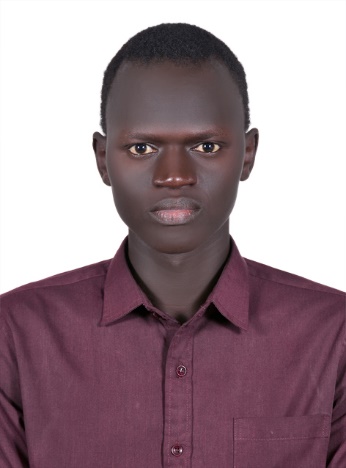By Agar Mayor Gai-Makoon
In today’s world, everything is political. We are a statement—our clothes, haircut, the way we act, Olga Tokarczuk.
Politics is valuable and beneficial to the citizenry, but when it becomes a tool to progress the interests of a few or a political party, citizens are set to lose ground. To my understanding, politics has always been the savior. Political wheels move around making life uniform to all men. It is, however, sad to admit that the opposite seems to be always the reality. South Sudanese have suffered from crooked political games rather than gaining from the true benefits of politics.
South Sudan requires straight politics—politics that uphold the rights and interests of the local people. There is no room for politics of party interests in societies that seek progress and prosperity. Instead, the interests of the people should always center discussions that concern them.
The people of South Sudan are tired of war and the unity of government. This is a clear fact, but the more political parties continue to prolong their stay in power, the more interest of the people is denied. For the suffering population, elections are the way and savior. Logically, there is no need for excessive politics regarding elections. The essence of these elections is giving power to the people. South Sudanese need the power to decide the direction of their country. However, the quest by the political parties to have the power to influence or block the elections is an absolute attack on the right of citizens to elect their leaders.
The electoral law is an unescapable route to free and fair elections, but when there are loopholes in the process of making this law, citizens lose their electoral power to the politicians. South Sudanese are not ready for this scenario. They need their electoral power come December next year. Incomplete implementation of the agreement is not enough excuse for any party to block conducting elections.
The principal parties, SPLM IG and SPLM In Opposition plus other parties to the agreement must consider it their responsibility to give citizens a free space to choose their leader next year. Abandoning party interests that do not align with the national agenda will be immensely helpful.
It is inappropriate to prioritize arms and politics of coercion now. I commend the international community in their search for peace in this country through arms embargo, humanitarian assistance and their unwavering contribution to the peace process.
Certain indicators must be available for the international community to trust us with arms. First, the separation of powers—where the three arms of government are independent. Part four, article 51 of transitional constitution of South Sudan clearly states the executive, judiciary and legislature and subsequent chapters define their independence and roles. If one organ for instance, the executive is more powerful than the rest, it is a big mess. Apparently, it is deadly to trust the government of South Sudan with arms.
The space for the collaborative work of the three organs should be created, and it is at this point that the international community will relax and leave everything to the government. The citizens will also have trust in their government and perhaps, peace and prosperity will be achieved at no cost. Secondly, political will from the leaders. The leaders should consider themselves as partners to nation building, not as bitter rivals—who even if one party is going the right way, the other chooses otherwise just because they do not want to be together.
South Sudan needs leaders who are grown up enough to practice progressive politics, instead of coercive and divisive politics. Politics is all about doing good for the good of the public, it is not what has unfolded in South Sudan’s political environment. The parties should style up and accept to work with one another for the good of South Sudan.
The writer is a former contributor to the Juba Monitor.




